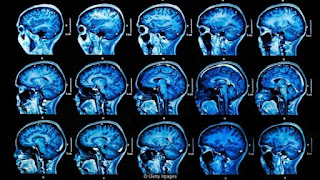pH imbalance in brain cells may contribute to Alzheimer's disease
Astrocytes work to clear so-called amyloid beta proteins
from the spaces between neurons, but decades of evidence have shown that if the
clearing process goes awry, amyloid proteins pile up around neurons, leading to
the characteristic amyloid plaques and nerve cell degeneration that are the
hallmarks of memory-destroying Alzheimer's disease.
The new study, described Proceedings of the National Academy
of Sciences, also reports that the scientists gave drugs called histone
deacetylase (HDAC) inhibitors to pH-imbalanced mice cells engineered with a
common Alzheimer's gene variant. The experiment successfully reversed the pH
problem and improved the capacity for amyloid beta clearance.
HDAC inhibitors are approved by the U.S. Food and Drug
Administration for use in people with certain types of blood cancers, but not
in people with Alzheimer's. They cautioned that most HDAC inhibitors cannot
cross the blood-brain barrier, a significant challenge to the direct use of the
drugs for brain disorders. The scientists say they are planning additional
experiments to see if HDAC inhibitors have a similar effect in lab-grown
astrocytes from Alzheimer's patients, and that there is the potential to design
HDAC inhibitors that can cross the barrier.




Comments
Post a Comment